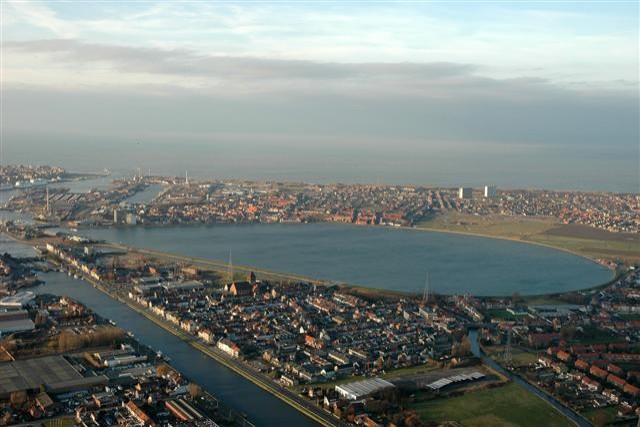Problems in tidal
rivers such as the Hari-Mukteswari and Kobadak river in Bangladesh are much
related to 1) water and 2) sediment. If we look carefully at the Dutch and
Belgian delta , we can find water and sediment also as a major cause of trouble
in tidal rivers. The Westerscheldt, the Eems and other water bodies under tidal
influence (such as the seaport of Oostende) need to be carefully managed in
order to prevent problems caused by an accumulation of sediment. Often, this
involves dredging.
If problems in the two
countries show similarities, can the solutions be similar as well? In Oostende,
a very large tidal basin is constructed in order to keep the harbor free of
sediment (picture 1). In Paal (Zeeuwsch Vlaanderen), a small tidal basin (“Spuikom” in
Dutch) keeps the harbor of Watersport
Vereniging Saefthinghe open by flushing it twice daily (picture 2).
Can strategically
placed tidal basins be used in other tidal rivers in the Netherlands to influence the
rate and location of sedimentation? Could tidal basins form an alternative
solution to the siltation problems in the tidal river of the Eems, instead of
creating an artificial island (picture 3) and continued dredging? Or are the two countries and the rivers not comparable?

Picture 1: a large spuikom in Oostende that fills up during high tide, and flushes the harbor during low tide.
Picture 2: a "spuikom" in action in Paal (Zeeuwsch Vlaanderen), used to help keep the harbor free of sediment.
Picture 3: newspaper article describing the plans to build an artificial island to help the river Eems.
Full article: trouw.nl/tr/nl/4332/Groen/article/detail/3366142/2012/12/20/Nieuw-Waddeneiland-moet-natuur-in-de-Eems-redden.dhtml























